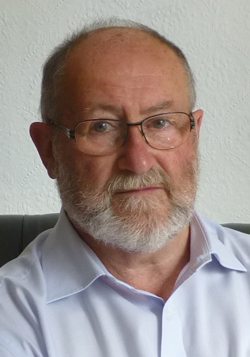The Society should support geologists in every sector, argues Larry Thomas
Thomas, L., The broader picture.
Geoscientist 29 (5), 9, 2019
https://doi.org/10.1144/geosci2019-026;
Download the pdf here

The article by Mike Simmons (
Speaking up for geoscience.
Geoscientist 28(11), 9, 2018) highlighted the relationship between academic and commercial viewpoints in relation to energy requirements. The petroleum industry has a high profile and still has an active group within the Society. The coal industry has not. The Coal Geology Group alas is no more, in part due to the reduction, and in some cases the abandonment, of coal exploration and mining in western Europe, so that the Society has no voice in this sector of industry.
Embedded coal
The general perception is that the use of fossil fuels is one of pollution and a contributor to environmental damage. Whilst this is historically true in many areas, the undeniable fact is that coal currently provides 39% of global electricity generation. Many countries do not have the finance and/or technology, and in some cases the inclination, to reduce or halt the use of coal. Many lack the knowhow and, more significantly, the funding to undertake renewable energy projects.
The role of the geologist is a double-edged sword. On the one hand their identification and determination of the geological character of coal deposits is appreciated by Governments and shareholders of mining companies, but they can be vilified by protest groups and environmentalists for simply doing their job.
Notable strides
It is important to realise that in the last 30 years, vast improvements have been made in coal mining and coal cleaning technologies. Additionally, conditions are placed on the geologist, for example, to consider whether coal seams with a sulphur content >1% should be mined or left in the ground. Geological reporting now is accompanied by hydrogeological analysis and geotechnical appraisal of any prospect, and all asset determinations are made according to international standards. Such improvements have been accompanied by the design and construction of modern power plants that control SOx, NOx and particulate emissions.
The industry and their geologists must communicate with others, whilst respecting confidentiality agreements, both within the geological sphere and the public at large, to explain the balance between fossil fuel extraction and the impact on the environment, as well as the financial ramifications.
I note that 2019 is the ‘Year of Carbon’. It is essential that the Society responds to the needs and viewpoints of academia and industry, producing an even-handed approach to presentations and discussions on the use of fossil fuels. There will be geologists in all the industries producing fossil fuels—let the Society recognise them and their contribution to global energy needs.
The Society is our voice in geosciences not only in the UK, but worldwide, so let’s hear it for all sectors of the profession.
Dr Larry Thomas, C.Geol, C.Eng, FIMMM, FGS; Director, Dargo Associates Ltd.; e-mail: [email protected]